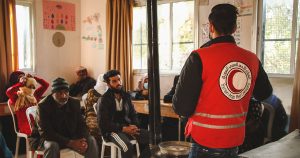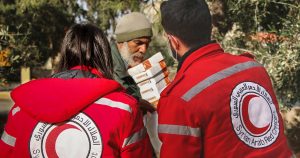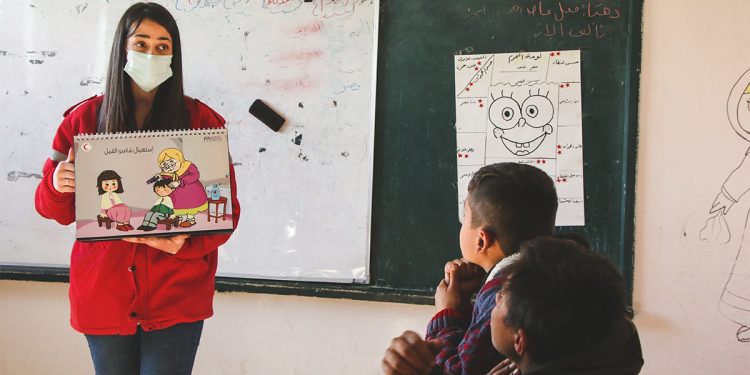The cheery feeling -of freshness after a warm bath, or of soap bubbles floating in the air when washing our hands- are always delightful. However, these cleaning habits alone are not enough in terms of maintaining health and protecting the body from viruses and bacteria, for that, other behaviors should be included in our daily routine, and they are summed up in rules of personal hygiene.
During one-week sessions, SARC volunteers delivered awareness messages to the people of Kanaker village in rural Swaida, about personal and public hygiene, using motivational illustrations.
The implemented messages
The sessions began with presenting information on diseases caused by viruses and microbes, then emphasizing the role of personal and public hygiene habits in illness prevention. Also, effective means of reducing water pollution, besides ways for having a healthy lifestyle were explained.
The messages were summarized as follows
1.Personal and public hygiene behaviors.
- 2. lice prevention.
3.Safe water cycle.
4.Gynecological infections prevention.
5.Hand washing.
37 awareness sessions targeted all age groups

Volunteers of SARC’s Health Awareness Promotion Team, managed to deliver their messages to 47 women and 32 men, throughout 37 sessions carried out during one week, and they also provided information for 67 children and 23 adolescents about the healthy routine they should adopt on a daily basis, as well as common myths and misconceptions about the spread of germs.
The volunteers taught the kids about the key times and the right way to wash their hands with soap and water, and other important hygiene practices that help stop the spread of viruses.
The distributed materials

The sessions were concluded by distributing sanitary items that help the participants apply the hygiene rules they learned. 407 people received (soap bars – lice prevention sprays – waste bags – dustpans with brushes – brooms- washing bowls – jerrycans – towels).
The volunteers are working continuously on raising awareness about the importance of prevention, as it is the first step in limiting the spread of viruses and diseases.


